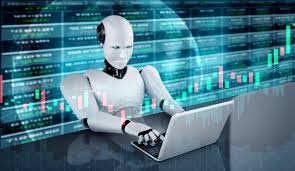In the dynamic world of forex trading, technology continues to revolutionize the landscape, offering traders innovative tools to enhance their strategies and potentially boost profitability. One such tool that has garnered considerable attention is the Forex Robot, also known as an Expert Advisor (EA) in trading platforms like forex robot. These automated systems are designed to execute trades on behalf of traders based on pre-defined criteria, promising to eliminate emotions from trading decisions and capitalize on market opportunities round the clock. However, like any tool, forex robots come with their own set of advantages and disadvantages, which every trader should carefully consider before integrating them into their trading arsenal.
Pros of Forex Robots:
- Automation: Perhaps the most significant advantage of forex robots is their ability to automate trading processes. Once set up, these systems can monitor the markets, identify trading opportunities, and execute trades without requiring constant supervision from the trader. This automation can be particularly beneficial for traders who have limited time to devote to monitoring the markets or those who prefer a hands-off approach to trading.
- Elimination of Emotional Bias: Emotions such as fear and greed are common pitfalls for traders and can often lead to irrational decision-making. Forex robots operate based on predetermined parameters and algorithms, devoid of any emotional influence. As a result, they can execute trades with discipline and consistency, potentially avoiding costly emotional trading mistakes.
- Backtesting and Optimization: Before deploying a forex robot in live trading, traders can backtest their strategies using historical data to assess performance and optimize parameters. This allows traders to fine-tune their systems and ensure they are robust enough to withstand various market conditions.
- 24/7 Market Monitoring: Unlike human traders who need rest, forex robots can operate continuously, monitoring the markets for trading opportunities even when the trader is asleep or occupied with other activities. This constant vigilance can help capture opportunities that may arise at any time of the day or night.
Cons of Forex Robots:
- Lack of Adaptability: While forex robots excel at executing trades based on predefined rules, they often lack the adaptability and intuition of human traders. Market conditions can change rapidly, and unexpected events can occur, causing strategies based solely on historical data to falter. As a result, forex robots may struggle to adapt to evolving market dynamics, leading to suboptimal performance or even losses.
- Over-Optimization: In their quest for optimal performance, traders may fall into the trap of over-optimizing their forex robots based on past data. While a system may perform exceptionally well in backtests, it may fail to replicate the same results in live trading due to overfitting to historical data. This phenomenon can lead to disappointment and disillusionment among traders who place unwarranted faith in their optimized robots.
- Technical Failures and Malfunctions: Like any software, forex robots are susceptible to technical glitches and malfunctions, which can potentially result in significant losses. Connectivity issues, server downtime, or bugs in the robot’s code are just a few examples of technical issues that traders may encounter. Moreover, relying solely on automated trading without a backup plan can leave traders vulnerable in the event of such failures.
- Dependency on Market Conditions: The effectiveness of forex robots is heavily dependent on the prevailing market conditions and the efficacy of the underlying trading strategy. Strategies that perform well in trending markets may struggle in ranging or choppy markets, leading to periods of underperformance. As a result, traders must carefully evaluate the robustness of their robots across various market conditions and be prepared to intervene when necessary.
In conclusion, forex robots offer traders the potential to streamline their trading process, minimize emotional bias, and capitalize on market opportunities with efficiency and precision. However, it’s essential to recognize that these automated systems are not without their drawbacks. Traders must conduct thorough research, exercise caution, and continuously monitor their robots to ensure optimal performance and mitigate risks. By striking the right balance between automation and human intervention, traders can harness the power of forex robots as valuable tools in their trading toolkit.
